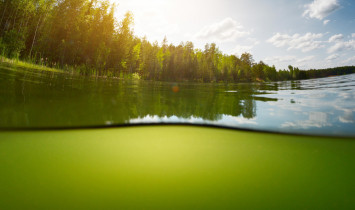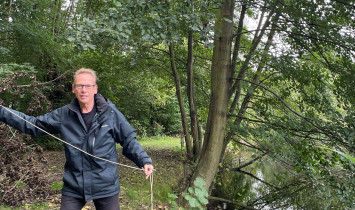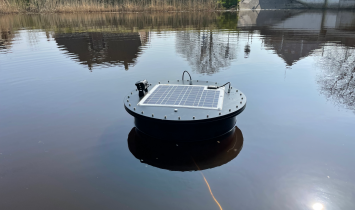Aquatic Ecology
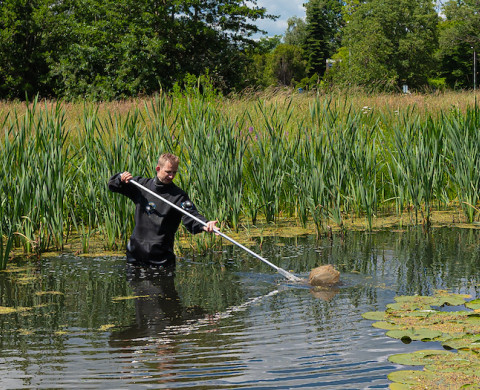
Our mission is to understand aquatic ecosystems, predict their responses to a changing world, and contribute to a sustainable future.
We investigate aquatic interactions and processes in lab, field and model systems over multiple timescales and actively engage with society to protect and improve the health of aquatic ecosystems.
The complementarity of expertise in the Aquatic Ecology department is our strength. By working together, our diverse approaches provide a deeper understanding of ecological processes and interactions.
Facilities
Aquatic ecology and climate change
Climate change is placing unprecedented pressures on our streams, ponds, and lakes. We study how longer-term and extreme climate events such as heatwaves, floods and droughts are changing the ecological balance of water bodies. We engage with stakeholders to explore how nature-based solutions can make our water networks and landscapes more resilient to climate change whilst protecting and enhancing biodiversity.
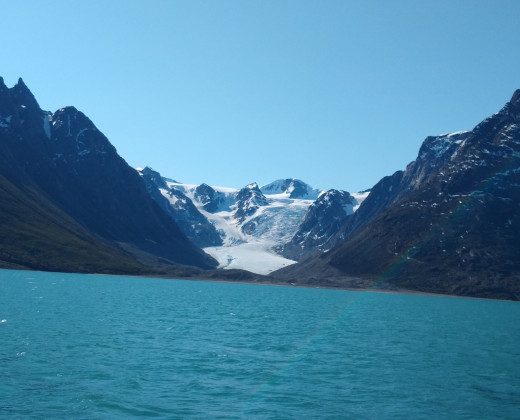
Understanding and restoring aquatic biodiversity
Our fundamental research into rapid evolution of plankton is helping to uncover how species adapt to the changing environment so we can better understand the mechanisms underpinning biodiversity. We also investigate how we as society can adapt by studying sustainable ways to restore and protect water ecosystems through approaches such as rewilding and aim to understand how biodiversity links to ecosystem resilience. To better understand and predict changes in biodiversity, we are developing novel methods for rapid identification of aquatic organisms using DNA analysis to enable more efficient biodiversity monitoring.
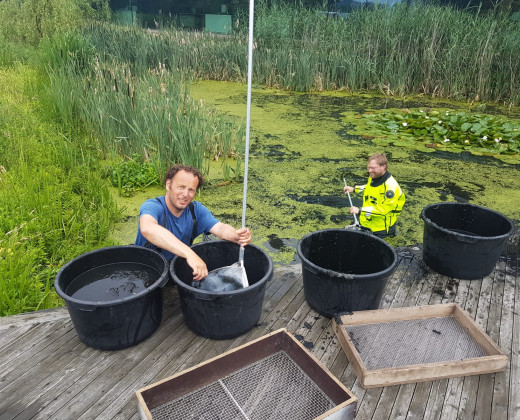
Water quality under pressure
Nitrogen and phosphorus pollution are still among the grand challenges for water management and our ecological approaches help to understand, predict and manage their consequences for water quality, including issues such as cyanobacterial blooms, invasive species and degraded food-webs. We use experimental, modelling and monitoring approaches to understand the drivers of water quality and to determine how societies use and interact with water. We investigate how emergent pollutants such as pharmaceuticals and microplastics are changing the structure and functioning of aquatic systems and conduct research into sustainable water treatment methods.
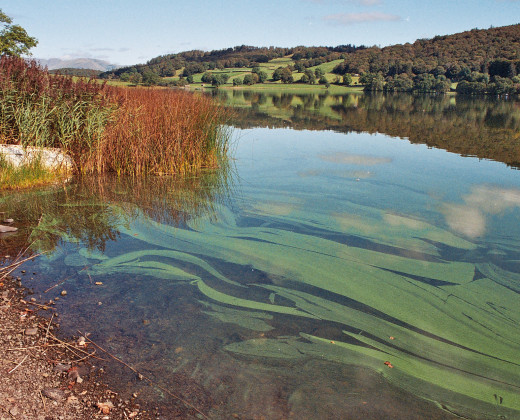
Research support in Aquatic Ecology
Our research assistants have years of experience working in the field and in laboratories, and are experts in aquatic ecology techniques. The team is on hand to support research scientists and students at the NIOO.
Specialist skills within the group include expertise in:
- Flow cytometry and trait identification of phytoplankton
- Water chemistry analysis
- Set-up and operation of experimental mesocosms
- Microscopic identification of zooplankton, phytoplankton and other aquatic invertebrates
- Aquatic plant sampling and identification
- Boat handling and aquatic sampling
- Elemental analysis of waters and sediments
- Chlorophyll and carotenoid pigment analysis
- Operation and maintenance of aquatic sensors
- DNA metabarcoding
- Algal toxin analysis
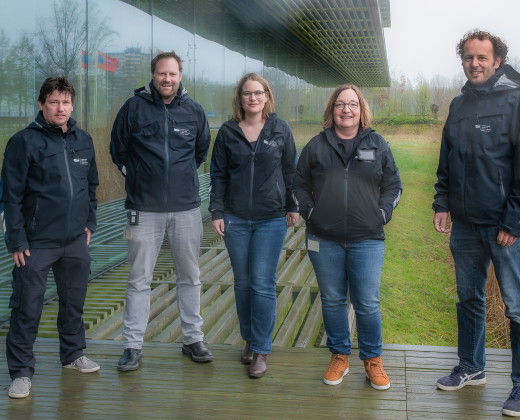
Experiments across scales: our facilities
Our experimental facilities range from outdoor experimental ponds for investigation of entire ecosystems with their full complexity, to microcosms, chemostats and batch experiments in the laboratory for more focused experiments gaining mechanistic understanding on responses of species, communities, and food-webs. The indoor limnotron facility provides a high level of experimental control at a large scale whilst including natural complexity. A sensor network allows access for remote users to track the conditions in each. We regularly deploy outdoor enclosures or exclosures in the field to allow us to conduct experimental manipulations on site.
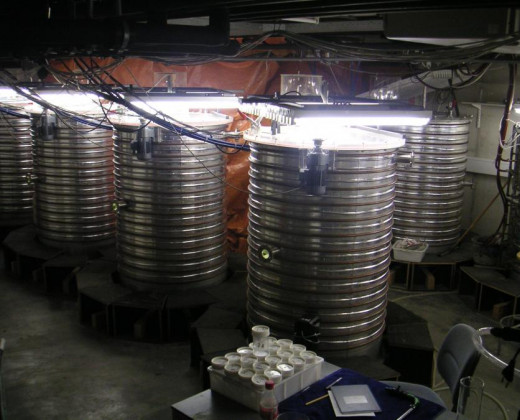
Long-term aquatic ecology
In this period of rapid global change, long-term ecological data are vital for helping us to understand how aquatic ecosystems are responding, and the possible consequences for biodiversity, ecosystem services and resilience. Long-term monitoring programmes at IJsselmeer - the largest lake in the Netherlands - help to understand the linkages between nutrient pollution and algal blooms. Sediment core studies can reveal ecologies of the past, covering decades, centuries and millennia to place recent changes into context. Long-term datasets are vital for supporting and testing the development of aquatic ecosystem models.
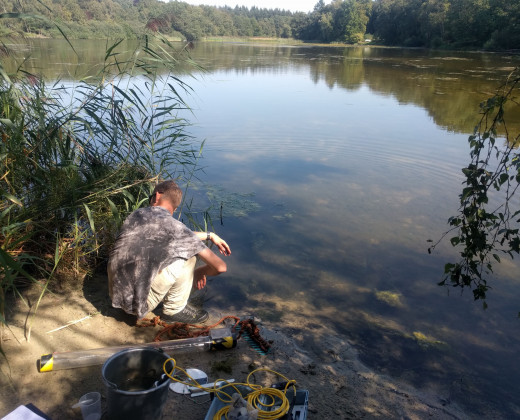
AKWA
Aquatic Knowledge Centre Wageningen (AKWA) is part of the Department of Aquatic Ecology. AKWA translates state-of-the art scientific knowledge into practical solutions for water issues. Stimulated by the growing interest for research valorisation in the Netherlands, AKWA wants to put her valuable scientific knowledge into practice.
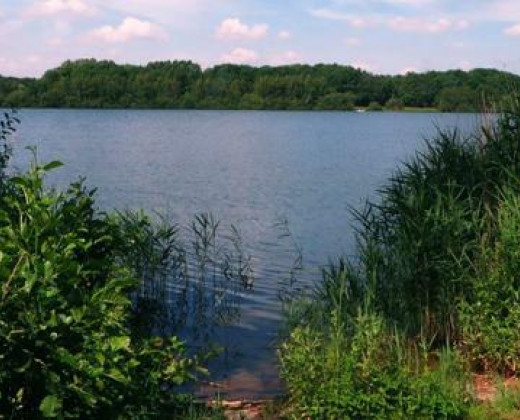
People
-
Prof. dr. Suzanne McGowan
- Function
- Head of department
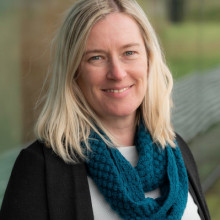
-
Prof. dr. ir. Dedmer Van de Waal
- Function
- Senior Researcher

-
Prof. dr. Liesbeth Bakker
- Function
- Senior Researcher
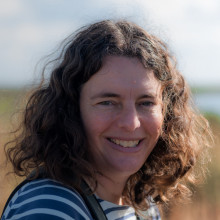
-
Prof. dr. Wolf M. Mooij
- Function
- Senior Researcher
-
Dr. Steven Declerck
- Function
- Senior Researcher
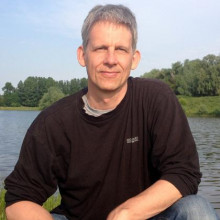
-
Prof. dr. Lisette de Senerpont Domis
- Function
- Researcher

-
Dr. Ellen Weerman
- Function
- Lecturer

-
Dr. Carel Dieperink
- Function
- Honorary Fellow

-
Prof. Elizabeth Borer
- Function
- Honorary Fellow

Peer-reviewed publications
How nutrient retention and TN:TP ratios depend on ecosystem state in thousands of Chinese lakes
Towards Design Principles for Good Multi-Level Drought Risk Governance: Some Lessons from the Rhine Basin
Sustainable aquatic resource management and inland fisheries in tropical Asia: Interdisciplinary and transdisciplinary approaches
What makes a cyanobacterial bloom disappear? A review of the abiotic and biotic cyanobacterial bloom loss factors
A lake management framework for global application: monitoring, restoring, and protecting lakes through community engagement
The interplay between defaunation and phylogenetic diversity affects leaf damage by natural enemies in tropical plants
Hydrostatic pressure impedes the degradation of sinking copepod carcasses and fecal pellets
Impact of mixed microalgal and bacterial species on organic micropollutants removal in photobioreactors under natural light
Hot summers raise public awareness of toxic cyanobacterial blooms
A serious game approach for lake modeling and management: The EscapeBLOOM
Understanding the differential impacts of two antidepressants on locomotion of freshwater snails (Lymnaea stagnalis)
Investigating the role of hydrological connectivity on the processing of organic carbon in tropical aquatic ecosystems
Seed dispersal between aquatic and agricultural habitats by greylag geese
Identifying the controls on nitrate and metabolic state within the Red River delta (Vietnam) with the use of stable isotopes
Creating wetland islands to enhance shoreline habitat for fish recruitment in a modified shallow lake
Long-term exposure to experimental light affects the ground-dwelling invertebrate community, independent of light spectra
Process-based modeling for ecosystem service provisioning
Towards climate-robust aquatic ecosystem restoration
Microalgae-based technology for wastewater treatment
Trophic cascades help restore vegetation
Tree cover and its heterogeneity in natural ecosystems is linked to large herbivore biomass globally
The combined effect of pH and dissolved inorganic carbon concentrations on the physiology of plastidic ciliate Mesodinium rubrum and its cryptophyte prey
The hidden impact
Hacking Limnology Workshops and DSOS23
Rapidly evolving zooplankton in a salinizing world
Using lake sediments to assess the long-term impacts of anthropogenic activity in tropical river deltas
Reconciling contrasting effects of nitrogen on host immunity and pathogen transmission using stoichiometric models
Structure and Productivity of Aquatic Ecosystems
Long‐term nutrient load reductions and increasing lake TN
SEED: A framework for integrating ecological stoichiometry and eco‐evolutionary dynamics
Creating new littoral zones in a shallow lake to forward-restore an aquatic food web
Timing matters
Connecting lakes: Modeling flows and interactions of organisms and matter throughout the waterscape
Regime shifts in shallow lakes explained by critical turbidity
Traits for transport
Assessing ambitious nature conservation strategies in a below 2-degree and food-secure world
Multispecies fish tracking across newly created shallow and deep habitats in a forward-restored lake
Linking theory with empirical data
Large mammalian herbivores affect arthropod food webs via changes in vegetation characteristics and microclimate
Evidence that long‐distance dispersal of aquatic invertebrates by ducks increases with propagule size
New paths for modelling freshwater nature futures
Impact of wastewater characteristics on the removal of organic micropollutants by Chlorella sorokiniana
Temporal modelling of long-term heavy metal concentrations in aquatic ecosystems
Factors influencing submerged macrophyte presence in fresh and brackish eutrophic waters and their impact on carbon emissions
Harmful algal blooms
The introduced Arapaima gigas in the Bolivian Amazon: Trophic position and isotopic niche overlap with native species
Towards a mechanistic understanding of the impacts of nitrogen deposition on producer–consumer interactions
Stressors in a bottle
How sharp is the knife? Herbivore and carnivore sensitivity to resource stoichiometric quality
Dead or alive
Enhancing phosphorus removal of photogranules by incorporating polyphosphate accumulating organisms
A plea for more freshwater experts in IPBES
Restoring gradual land-water transitions in a shallow lake improved phytoplankton quantity and quality with cascading effects on zooplankton production
Characterization of lacustrine harmful algal blooms using multiple biomarkers: Historical processes, driving synergy, and ecological shifts
Monitoring contaminants of emerging concern in aquatic systems through the lens of citizen science
Effects of the antidepressant fluoxetine on the swimming behaviour of the amphipod Gammarus pulex
Beyond Daphnia: a plea for a more inclusive and unifying approach to freshwater zooplankton ecology
Anthropogenic activities in the páramo trigger ecological shifts in Tropical Andean lakes
Double‐edged effects of anthropogenic activities on lake ecological dynamics in northern China: Evidence from palaeolimnology and ecosystem modelling
Spatial and seasonal variation in the phytoplankton community of Lake Victoria's Mwanza Gulf, compared to northern parts of the lake
City-to-city learning to enhance urban water management
High resolution functional analysis and community structure of photogranules
Trophic rewilding can expand natural climate solutions
Seasonal and habitat-based variations in vertical export of biogenic sea-ice proxies in Hudson Bay
Dammed deltas: Sinking Asian deltas in a warming world
N 2 ‐fixation can sustain wastewater treatment performance of photogranules under nitrogen limiting conditions
Environmental refuges from disease in host‐parasite interactions under global change
Ecosystem deterioration in the middle Yangtze floodplain lakes over the last two centuries
Dispersal of aquatic and terrestrial organisms by waterbirds
Contrasting effects of nitrogen fertiliser application on the performance of closely related grasshoppers through changes in plant nutrient concentrations
Enhancing the predictability of ecology in a changing world
Seed dispersal by waterbirds: a mechanistic understanding by simulating avian digestion
An experimental test of the growth rate hypothesis as a predictive framework for microevolutionary adaptation
Salinisation effects on freshwater macrophyte growth and establishment in coastal eutrophic agricultural ditches
Moving beyond standard toxicological metrics: the effect of diclofenac on planktonic host-parasite interactions
Moerasontwikkeling op voormalige landbouwgrond
Elemental and biochemical nutrient limitation of zooplankton
Sentinel responses of Arctic freshwater systems to climate
Microbial community day-to-day dynamics during a spring algal bloom event in a tributary of Three Gorges Reservoir
Drastic reduction of nutrient loading to a reservoir alters its resistance to impacts of extreme climatic events
Physiological control on carbon isotope fractionation in marine phytoplankton
Impacts of inorganic nutrients on the physiology of a mixoplanktonic ciliate and its cryptophyte prey
What is the pollution limit? Comparing nutrient loads with thresholds to improve water quality in Lake Baiyangdian
Fish grazing enhanced by nutrient enrichment may limit invasive seagrass expansion
Reply to “Marine abundance and its prehistoric past in the Baltic”
Reduced fertilization constitutes an important prezygotic reproductive barrier between two sibling species of the hybridizing Brachionus calyciflorus species complex
Het verondiepen van diepe uiterwaardplassen met slib
Removal processes of individual and a mixture of organic micropollutants in the presence of Scenedesmus obliquus
Comment on “Models predict planned phosphorus load reduction will make Lake Erie more toxic”
First report of Economidichthys pygmaeus (Holly, 1929) (Gobiidae) in Lake Lesser Prespa, Greece
Investing in Urban Blue–Green Infrastructure—Assessing the Costs and Benefits of Stormwater Management in a Peri-Urban Catchment in Oslo, Norway
Experimental evidence of rapid heritable adaptation in the absence of initial standing genetic variation
Nationaal Park 3.0
On a razor's edge
Disease-mediated nutrient dynamics
Urbanization and seasonality strengthens the CO2 capacity of the Red River Delta, Vietnam
Phytoplankton functional composition determines limitation by nutrients and grazers across a lake productivity gradient
Changing water quality and thermocline depth along an aquaculture gradient in six tropical crater lakes
Towards climate-robust water quality management: Testing the efficacy of different eutrophication control measures during a heatwave in an urban canal
Drivers of variability in disinfection by-product formation potential in a chain of thermally stratified drinking water reservoirs
Impacts of sediment resuspension on phytoplankton biomass production and trophic transfer: Implications for shallow lake restoration
Evolutionary history of grazing and resources determine herbivore exclusion effects on plant diversity
Large mammalian herbivores modulate plant growth form diversity in a tropical rainforest
Making waves: Lessons learned from the COVID-19 anthropause in the Netherlands on urban aquatic ecosystem services provisioning and management
The role of organic nutrients in structuring freshwater phytoplankton communities in a rapidly changing world
Paleolimnological records for tracking dam-induced changes in the composition and supply of sediment to middle Yangtze floodplain lakes
Eutrophication has a greater influence on floodplain lake carbon cycling than dam installation across the middle Yangtze region
Phytoplankton responses to repeated pulse perturbations imposed on a trend of increasing eutrophication
Dietary expansion facilitates the persistence of a large frugivore in fragmented tropical forests
Submerged vegetation colonizes behind artificial wave shelter after a 10-year time-lag and persists under high grazing pressure by waterbirds
Monitoring biological water quality by volunteers complements professional assessments
Intrinsic postzygotic barriers constrain cross-fertilisation between two hybridising sibling rotifer species of the Brachionus calyciflorus species complex
The biogeography of relative abundance of soil fungi versus bacteria in surface topsoil


